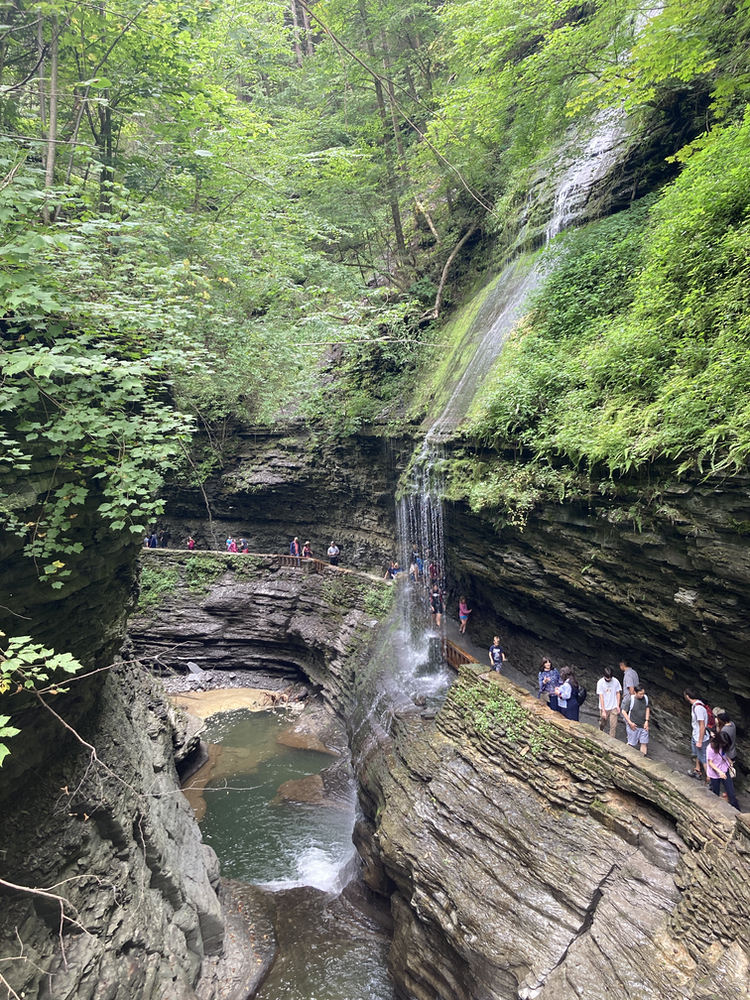What’s it for?
For as long as I’ve been recording podcasts I’ve wanted to figure out how to learn more, and retain more, from the conversations. An audio recording of a good conversation can be a good experience for the listener; It can be good experiential learning. But the conversations contain so much more—facts sure, but also connections to other people, projects, stories, new perspectives, insights—which I know I’m missing. If something prompts my memory, I can recall the experience of the conversation, but everything else is either never learned, or if it was, I’ve subsequently lost it.
I’m reminded of…
If you remember what an author says, you have learned something from reading him. If what he says is true, you have even learned something about the world. But whether it is a fact about the book or a fact about the world that you have learned, you have gained nothing but information if you have exercised only your memory. You have not been enlightened. Enlightenment is achieved only when, in addition to knowing what an author says, you know what he means and why he says it.
~ Mortimer Adler, author of How to Read a Book, 1972
There are multiple levels of understanding and learning, contained in each conversation. At the root of my feeling that I’m missing out is the knowledge that I’m only retaining the most-superficial level of the experience.
Who’s it for?
It’s obviously for me. But by doing the writing in public everyone who finds a specific episode interesting would be able to capture and retain more of those “levels of experience” for themselves.
What does success look like?
As I mentioned, my urge to do something more with the conversations is not new. In the Movers Mindset project, I have already experimented with ways to enable others to get more from each conversation. Two efforts in particular are worth discussing.
First, I’ve pushed the concept of episode notes to the limits of sanity. We have guest images, embedded audio player, guest pull-quotes, transcript excerpts, highlights, and the entire thing is organized by chapters—the audio files have embedded chapter information if your player-app supports it. Each section is cross-linked to the corresponding part of the full transcript; The transcripts are organized into sections which are linked back to the episode’s page. This takes massive effort involving myself, Melissa, Rev.com, custom software, and hours of time. Here, take a look at, Selene Yeager: Menopause, Health, and Writing.
Second, I’ve created a tool which enables exploring the episodes. If you were looking closely at Selene’s episode notes, you’ve seen one part of this already. The tool enables choosing a perspective, (for example, how did they answer the signature, three-words question,) and that perspective is dynamically inserted into the page that you saw. There are many other perspectives which you can interact with. (Imagine an old-fashioned, twist-adjustable kaleidoscope; the tool I built is the kaleidoscope and you’re pointing it at the entire Movers Mindset project.) If you want to try something mind-bending, take a look at, Exploring the Movers Mindset Project, where I explain it in more detail, and which includes embedded controls for playing with the current perspectives in real time.
Beyond those to efforts, I’ve always wanted to write something based on the Movers Mindset conversations. Unfortunately, they’re quite long adding to the difficulty of finding a “chunk” to work on. One of my goals in creating the Podcaster Community, was to create a short-form-conversations companion podcast. (Look for Podcaster Community wherever you listen, or you can play the episodes via embeds on the community’s forum.) Those conversations are targeted at 20 minutes which usually leads to a single, clear thread appearing in each episode. This gives me terrific material to work with as I explore how to get at the deeper levels of learning within each episode.
On July 15, 2021 I put up an article, On Storytelling, which is based on the first episode of the Podcaster Community’s companion show. That article was an experiment, and based on the responses it was a successful experiment.
Just figuring out how to write that article was an experiment. First I spent hours talking to various people about how to write an article from a conversation, and about what style, format and voice should be used in such an article. I tried a variety of tools for writing; Not simply “which text editor” but rather what process should I use. I tried: Listening and then starting with a blank page; Dumping the transcript into a spreadsheet (transcript in one column with a cell per block of dialog from each speaker) and converting each cell into corresponding prose in a second column; Working conceptually outwards to an outline of principles or topics, and then working back inwards to create prose. I eventually settled on a way to directly transform the raw transcript into a finished piece. Even though I’ve settled on a way to do it, it remains hard work. It took me three hours to write that experimental article. All of that to say: I’ve only done one, but I’m confident I can now do many more.
How many could I write? There are already 40+ episodes of the Podcaster Community’s show. I estimate there are 300 pieces of Movers Mindset episodes that could be articles. (Many episodes have 3+ threads of discussion, each the size of one of the Podcaster Community’s entire episodes.) I’ve also begun recording short-form-conversation episodes for Movers Mindset. With recording continuing across multiple projects, I have an effectively unlimited supply of raw material.
What’s the problem?
To free up enough time to write consistently, to make meaningful progress, my projects need to become a source of income for me. Movers Mindset has some patronage revenue, (you people are awesome,) and the Podcast Community has a core group of supporters, (also awesome,) which are covering its costs. But neither of them currently supports my life and creates space for this new writing.
My questions are…
Are the conversations valuable?
Would it be valuable to create articles from the conversations?
Would you be willing to support my writing efforts by supporting the Podcaster Community, or by supporing Movers Mindset?
ɕ






